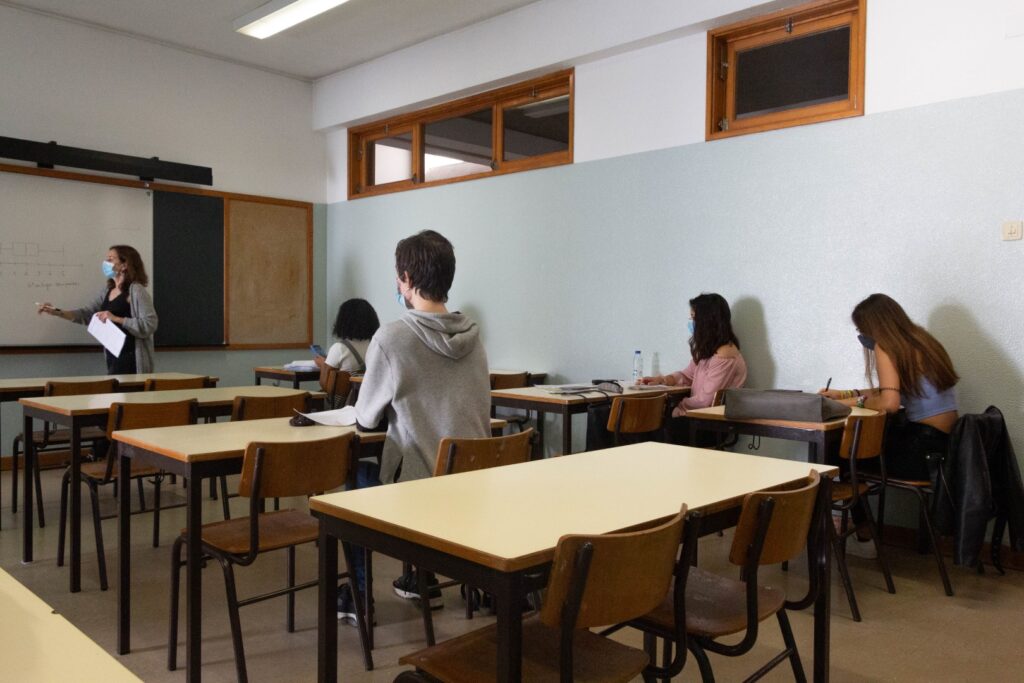When returning to work and classes, only 4,9% of the Portuguese believe that the distance will be fulfilled in schools. 34,5% would like telework to partially become part of their professional activity. Most Portuguese claim to have changed their holidays due to the Covid-19 pandemic. These are the conclusions of a new joint study of the multidata.com – the research agency e Guess What.
According to the findings of the study, 22,0% of Portuguese do not agree with the return of students to school in person, but only 3,9% indicate that they will not send their children to school during the month of September .
When asked about the probability of classes being taught in person and without interruptions until the end of the school year, there is significant optimism among the Portuguese, given the average value of 6,8 (on a scale from 0 to 10).
However, if classes are interrupted, 42,8% of Portuguese people assume that they feel unprepared to have their children at home again.
Only 4,9% believe that the recommended distance of 1,5/2 meters will be adhered to in schools, a measure with which 20,7% agree. Even less (12,9%) are those who support the fact that each group should be restricted to one area of the school.
work and telework
The results differ as to the professional situation of the respondents. 20,9% of Portuguese say they maintained the same conditions they had before the pandemic, while 20,0% said they were teleworking, but have already returned to the office. 2,6% of respondents also reveal that their company closed during the pandemic period.
34,5% of respondents reveal that they would like telework to become part of their professional activity partially and as long as it is agreed with the organization. 9,7% reveal a preference for completing their professional activity, in full, in telework.
On average, and on a scale from 0 (not at all productive) to 10 (completely productive), the Portuguese classify their performance in teleworking as productive (7,69), as well as the organization's productivity in this format (6,38).
Almost two-thirds vacationed in Portugal
63,9% of Portuguese claim to have spent their holidays in national territory, while 4,4% of respondents enjoyed their rest period abroad. 16,4% stayed in their usual residence.
Of the Portuguese who spent their holidays in Portugal, the Algarve region was preferred (28,0%), followed by the districts of Lisbon (7,4%) and Aveiro (6,7%). 27,1% of respondents spent their holidays in their own or family holiday home, while 23,6% opted for a rented holiday home and 17,4% for a hotel.
79,7% of the Portuguese experienced a different stay than usual, a decision that a large part (46,7%) reveals to be due to the pandemic. 54,5% of respondents who opted for a motorhome did so because it is a cheaper solution to combat the reduction in income caused by Covid-19.
The motorhome is, on average, also the one with the highest level of safety (9,25), followed by one's own or family vacation home (8,97) and a village (8,9) - considering a scale where 0 is too unsafe and 10 is too secure.
The study was carried out using the CATI (Telefônico) and CAWI (online) methods to a database of registered users on the multidados.com platform. 1.000 responses were collected and validated between the 1st and 15th of September 2020.



















Comments